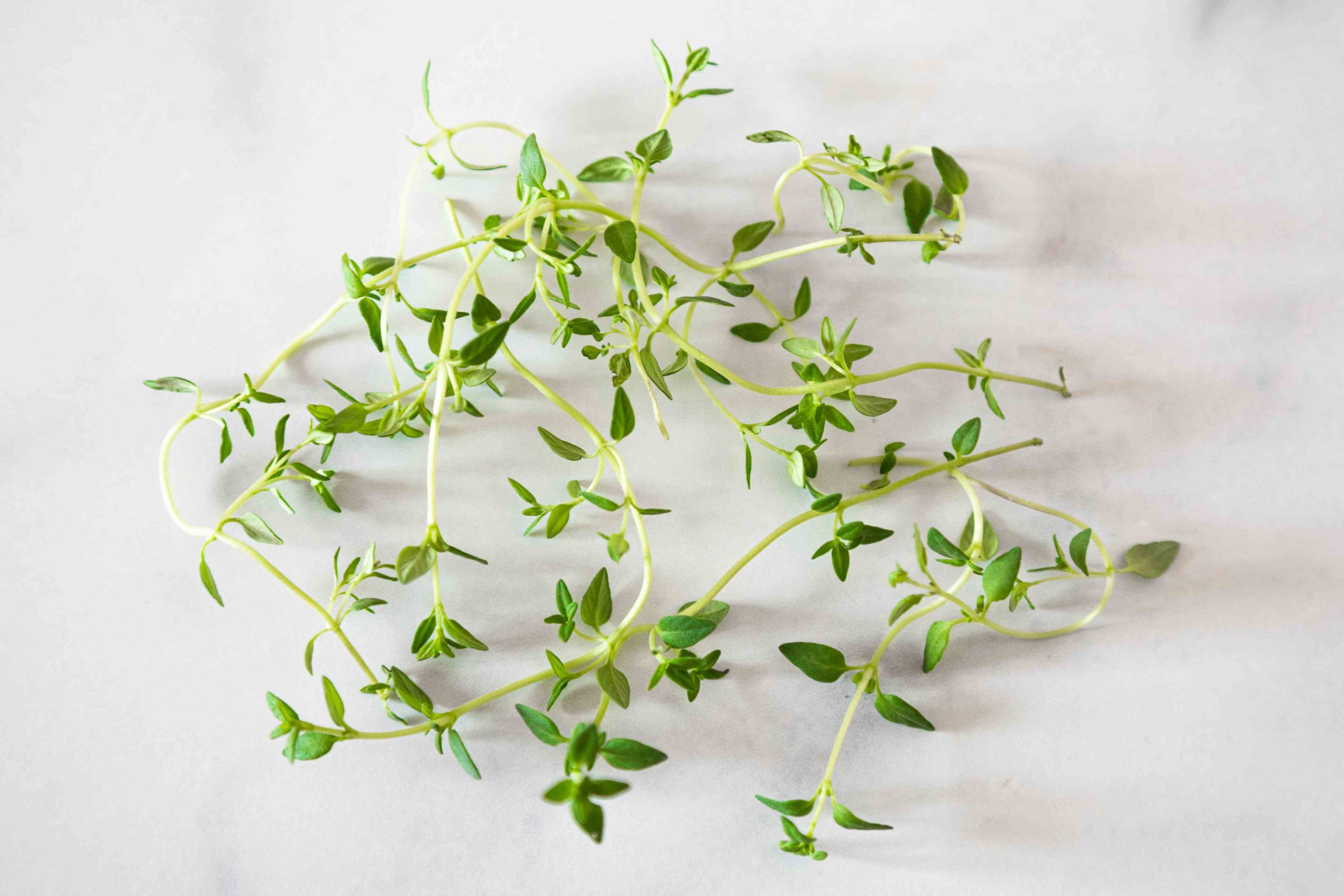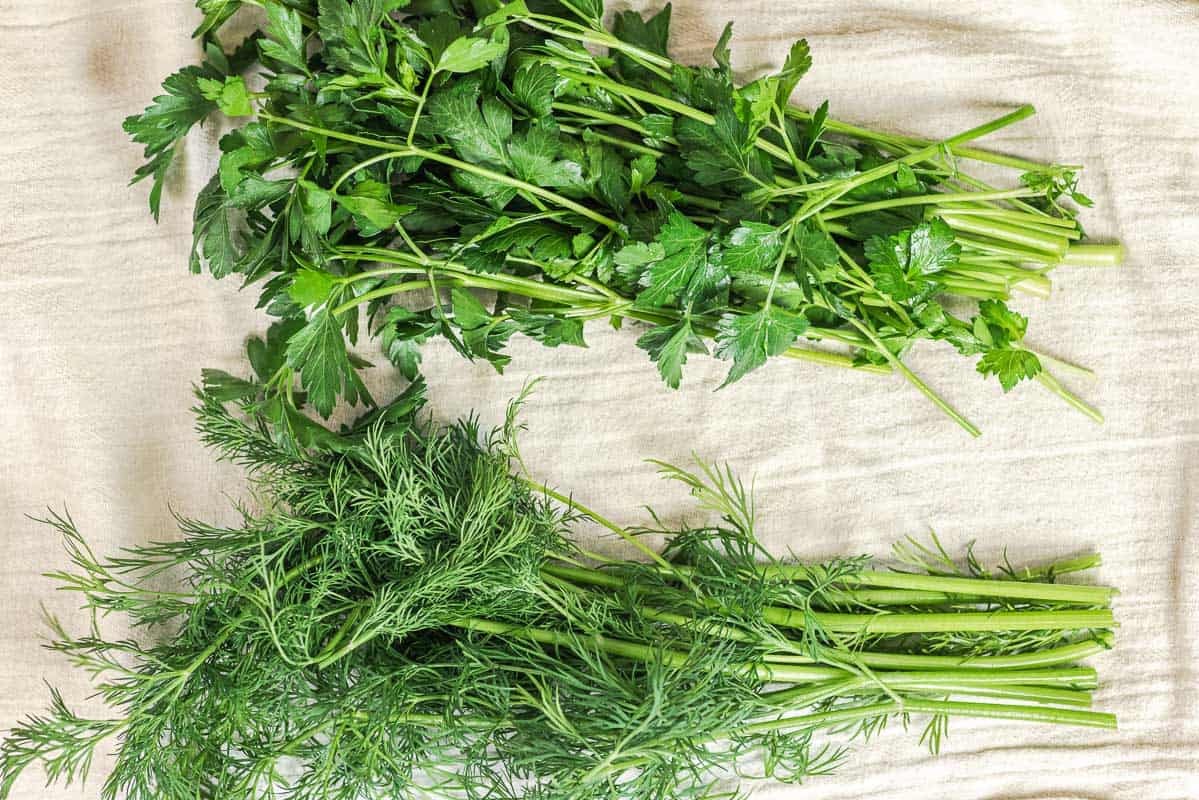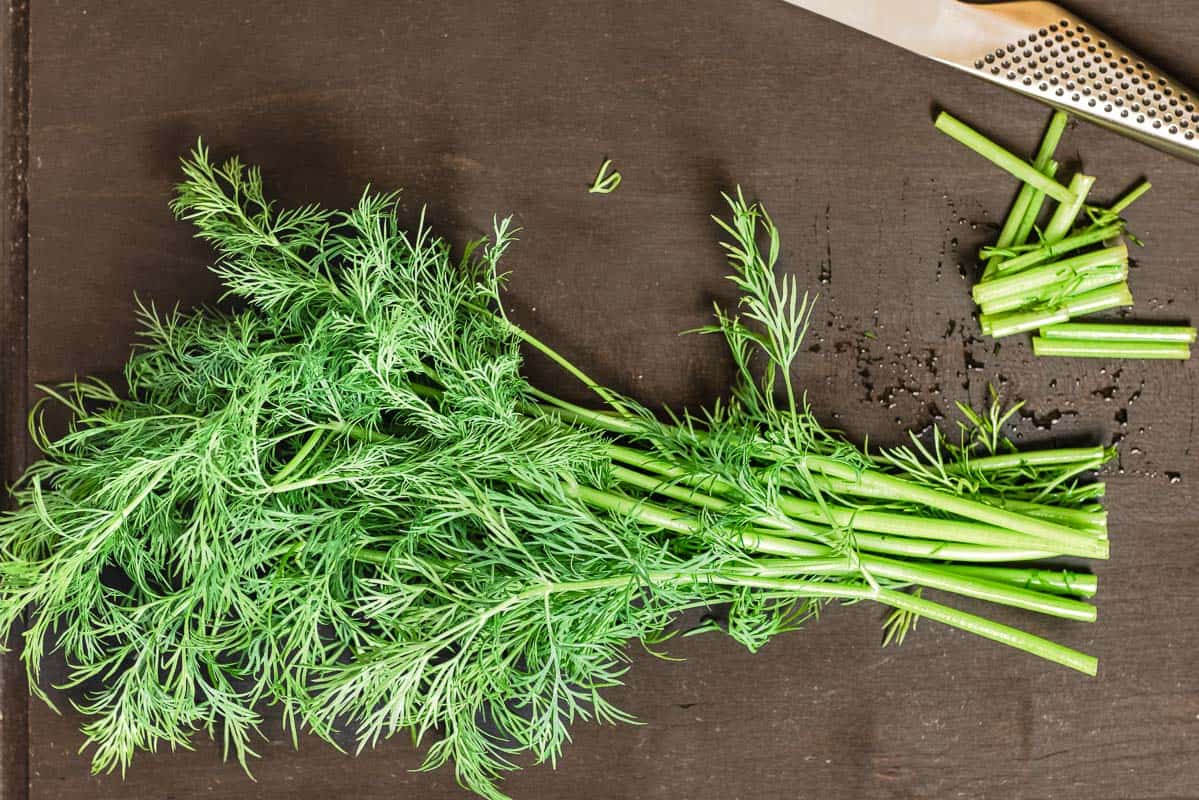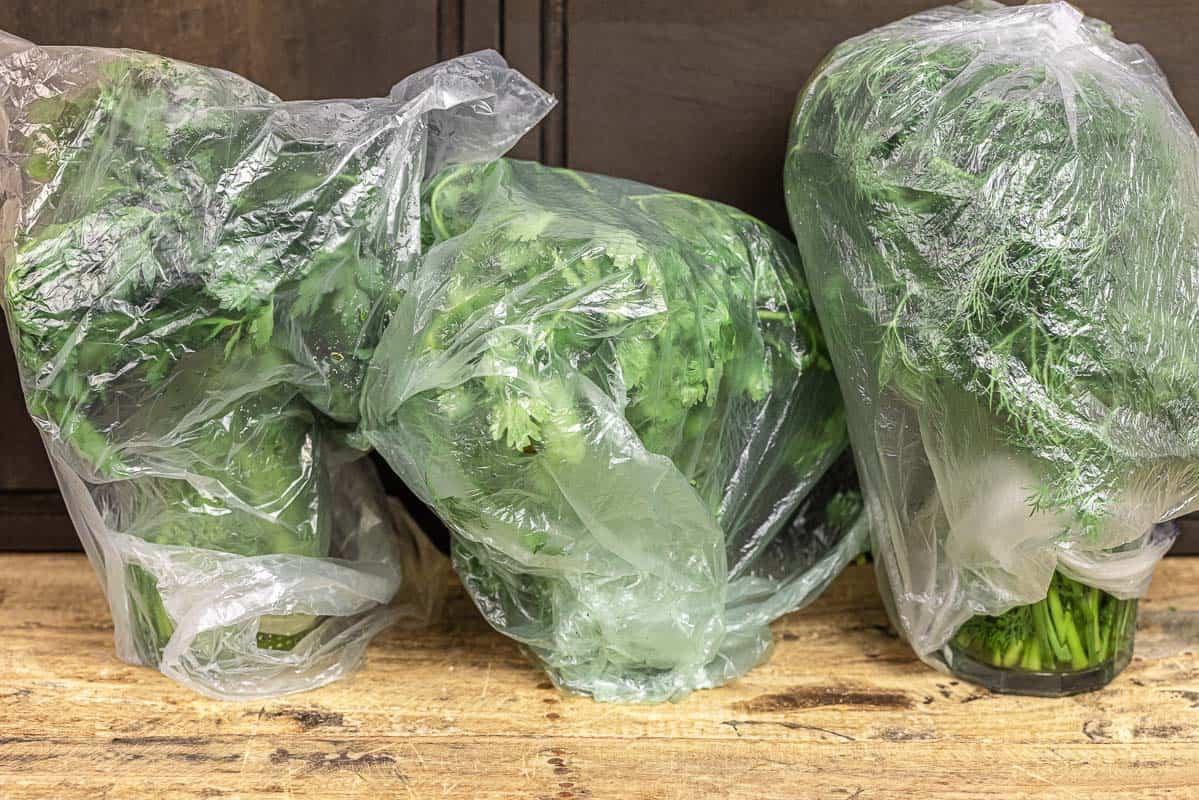“How do you keep your herbs fresh and vibrant?” is a question I get on the regular. So today, I’ll tell you exactly how to store fresh herbs so they last and stay green and flavorful for a good while (10 days to 2 weeks, and sometimes, when Im lucky, even longer!)
My friends have a running joke about me being the “parsley queen”! It’s funny because it’s true! Cooking the Mediterranean way, I use more herbs than anyone I know!
I usually buy my herbs in bulk (bunches of them at a time), and I have a great way to store them so they last me a good 10 days and up to 2 weeks, and sometimes even longer!
Today, I’m sharing all my tips for how to store herbs, particularly soft herbs (like parsley, cilantro, dill, etc.) I also have some tricks for storing hardy herbs like oregano and rosemary so they keep well and remain flavorful.
Fresh thyme should be stored in the refrigerator, in either its original packaging or in a damp paper towel in a plastic bag to preserve freshness.

How to store soft herbs in the fridge
Time needed: 10 minutes
This is my favorite way to keep soft herbs (such as parsley, dill, cilantro, and mint) fresh for 10 days to 2 weeks in the fridge (sometimes even longer!):
- Remove rubber bands or fastenings Your herbs will come bundled with a rubber band or some plastic twisty, you need to remove that first as it can damage the herbs.
- Wash the herbs in cool water Swish the herbs in water several times to get rid of all dirt. I do this in a large bowl, changing the water until it runs clear.
- Dry the leaves very well Give the herbs a good shake or put them in a salad spinner and give them a gentle spin. Then go ahead and spread them on paper towels or a clean linen towel to dry. (I like to have a clean linen towel under the paper towels for better absorption.) Pat the herbs dry and roll the towels over them so that you can capture any left moisture.

- Trim the herbs. Trim about an inch or so from the bottom of the stem.

- Put the herbs in water (like a bouquet of flowers). Fill a large glass of water just ⅓ of the way and put the herbs in it, sort of like a bouquet of flowers. (The trimmed part of the stem should be in the water. The leaves should not touch the water.)
- Cover the herb leaves with a recycled bag Grab a shopping bag and cover the leaves with it, and tuck the bag under the glass or tie it loosely at the bottom. (If you like, you can also use a tall glass jar with a tight lid, as long as the leaves fit nicely in the jar)

- Refrigerate. Keep the herbs in the fridge, covered. For best results, change the water every few days. You can also give the stems another small trim.
Know the type of herb you’re working with
There are two types of herbs: soft herbs and hardy herbs, and they need to be stored differently.
Luckily, its really easy to figure out which type of herb you have. Soft herbs have tender stems and delicate green leaves. The stems are also edible, though, in some cases, they may taste bitter. Some examples of soft herbs are cilantro, dill, mint, parsley, and basil.
Hardy herbs have woody stems (which should not be eaten) and tougher leaves. Rosemary, thyme, and oregano are all hardy herbs.
Most fresh herbs are best stored in the refrigerator (with the exception of basil – more on that later). But depending on the kind of herbs, soft or hardy, you’ll need to prepare them a certain way so they will last in the fridge.
How to Prepare and Store Fresh Thyme
FAQ
Does fresh thyme need to be refrigerated?
Is it safe to use old thyme?
How do you keep fresh thyme from going bad?
Do thyme sprigs go bad?
How long does thyme last if not refrigerated?
Thyme is one of those hardy herbs that can last for a while, even without being refrigerated. Even so, it will last for even longer if you keep it in the refrigerator. You can keep fresh thyme usable for up to two weeks simply by wrapping the sprigs in damp paper towels and leaving them in your refrigerator’s crisper drawer.
How to use thyme?
Thyme can be used fresh or dried, and works well in soups, roasted vegetables, pasta, sauces, pizzas, chicken, stews, eggs, fish and seafood, lasagna, pork, lamb, or beef.
Can thyme go bad?
Thyme can go bad if it’s left in the freezer for too long. Like any other foods that are stored in the freezer for a prolonged time, it will start getting freezer burn. Proper storage will keep thyme fresh for up to six months. After that, the quality of the herb will slowly decrease over time.
Can you store thyme if it is wet?
Storing thyme while it is wet will cause the leaves to blacken and fall off within a few days. They will also lose their flavor. Don’t go overboard with thyme. Thyme is a pungent herb, so you will want to be careful with how much of it you use. You also want to give its flavor time to mellow out in your dish.
